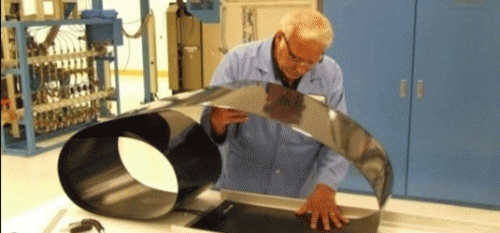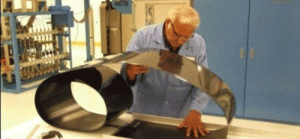
Flexible thin-film solar PV manufacturer Ascent Solar Technologies announced yesterday that China’s TFG Radiant Group is acquiring an additional 21% equity stake in the company by purchasing shares owned by Norsk Hydro Produksjon AS for $4 million. The purchase price, at about $0.50 per share, is a 19% premium to Nasdaq-listed Ascent’s $0.42 closing share price on Tuesday, and will bring TFG’s overall equity in Ascent to 41%.
Along with taking its initial equity stake in Ascent, TFG Radiant in August obtained exclusive East Asia manufacturing rights for Ascent’s thin-film PV technology. At the time, TFG said that it would invest $165 million to build a manufacturing plant in China.
Thornton, Colorado-based Ascent Solar manufactures flexible thin-film CIGS (Copper Indium Gallium Selenide) solar PV products on plastic substrates for a variety of applications, including building-integrated and electronics-integrated photovoltaics (BIPV and EIPV, respectively).
LDK to Acquire Germany’s Sunways
On Tuesday, LDK Solar, one of China’s largest integrated solar PV companies, announced that it’s acquiring a 33% ownership stake in Germany’s Sunways AG, a manufacturer of silicon solar PV cells, modules, inverters and solar PV systems.
LDK, through its German subsidiary, will acquire 1/3 of Frankfurt Stock Exchange-listed Sunways’ increased share capital of more than $2.2 million, subscribing for a total of 5.79 million new shares of the German company to be issued against a cash contribution and contributions in kind, i.e. shares.
LDK also announced that it will offer to acquire all of Sunways’ shares for 1.90 euros per share in cash. It intends to submit public takeover offer to Sunways’ shareholders that will be published in late January, subject to the approval of Germany’s Federal Financial Supervisory Authority. Both the share capital increase and acquisition need to be approved by the Federal Cartel Office. Both transactions are expected to be completed in 1Q 2012.
The deal will also shore up LDK’s China operations. With LDK’s cash and shares in hand, Sunways will turn around and acquire indirect ownership of a company based in China, according to the press release.
“Through this China-based subsidiary, Sunways will have access to LDK Solar’s module production plants in China for the further joint development of high-performance solar modules cost-effectively,” it states.
LDK has a long-term agreement to supply Sunways with silicon wafer used to manufacture PV cells and modules. That contract will be terminated unless German government authorities don’t approve Sunways’ share capital increase, in which case it will be reinstated.
Solar PV Trade Tensions
US-China trade tensions centered on solar PV industry subsidies have been rising. US ITC and Commerce Dept. decisions on a solar PV cell and module dumping case filed by the Coalition for American Solar Manufacturers (CASM) are due out early this year. This past week, a group of four US wind turbine tower manufacturers formed a coalition called the Wind Tower Trade Coalition filed a similar complaint against Chinese competitors. China solar power market participants have retaliated by filing a complaint with China’s trade authorities claiming that US polysilicon producers are dumping their product in China. China’s also decided to levy import duties on vehicles produced in the US, high-end SUVs in particular.
The outcome of these trade disputes is still up in the air, but it’s clear that Chinese solar PV players have previously formulated contingency plans to mitigate their negative effects. While establishing solar PV manufacturing operations in the US and Europe is one option being pursued, taking equity stakes in existing solar PV producers is a quicker alternative that also creates joint ownership stakes between Chinese, US and European producers in solar PV manufacturing capacity across borders.
Source: Clean Technica

 Follow
Follow